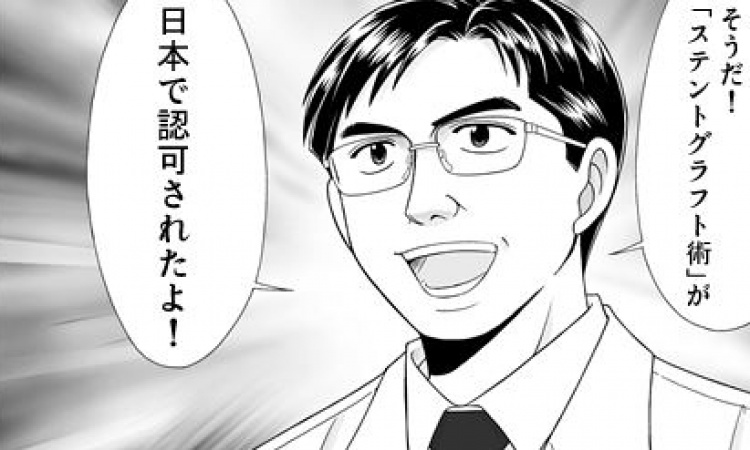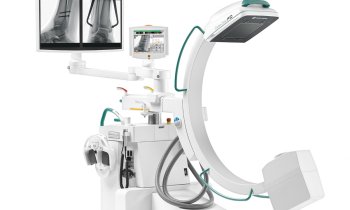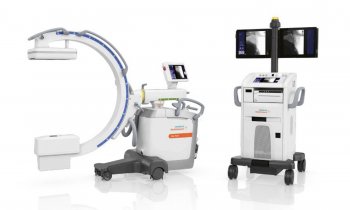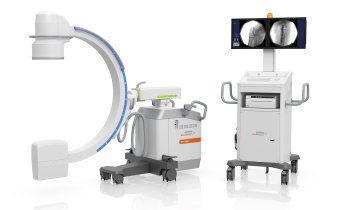Education in surgery
Suffering permanent stress
‘There are still only 24 hours in a day – even for surgeons,’ said Professor Vogt MD during our interview. The Director of the clinic for plastic, hand and reconstructive surgery at Hanover Medical School and President of the DGCH (German Society of Surgery) is calling for solutions to the dilemma trainee surgeons face: undergoing high-quality specialist medical training while completing acceptable daily shifts that should ideally not exceed ten hours.
Report: Chrissanthi Nikolakudi
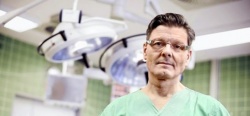
Asked why trainee surgeons have such long and labour-intensive shifts and what might be done to alleviate their stress, Prof. Vogt suggests that either the specialist training duration needs to be substantially increased, or trainee surgeons must be released from additional work, not only to relieve stress but also to ensure they are sufficiently trained. ‘The advanced training should be completed within a reasonable period of time; internationally, this period varies between six and eight years,’ he explained. ‘If we want to ensure high quality, specialist medical training in Germany we need to change from a system where training is carried out alongside regular work to a truly training-based system. ‘The trainee would then be entitled to comprehensive and systematic training and would be exonerated from all the administrative tasks.
Too much administration
‘The number of administrative tasks has grown to such an extent that it has become almost unacceptable – there is a lot of documentation to be completed, documents to encode and decode. There are hospitals where doctors have to type their own letters – but there are still only 24 hours in a day, even for surgeons. ‘The second option to help align training and working hours would be to extend the overall training period. Swedish surgeons are setting a good example: The completion of surgical training in Sweden takes ten years.’
‘Medicine is all about documentation these days. You have to generate qualitative data in the clinical accounting system so that the respective DRG reimbursements for services can be processed. The turnaround times for documents have also been cut significantly: when patients are discharged surgical reports and doctor’s letters must be available immediately and the turnover of patients is now much higher than ten years ago.’
High economic pressure demands great hospital efficiency. He suggests: ‘Administrative tasks could be passed on as a matter of delegation, not substitution. There is a lot of discussion around this in our specialist society.’
Country comparisons
Prof. Vogt pointed out that Germany is very different from Great Britain or the USA. In the latter a reduction to 80 working hours caused an outcry, ‘So we are significantly below this level with our core working hours being a maximum of 48 hours a week.’
‘These hours are obviously exceeded at times, however, generally not by doctors who are still undergoing training. It applies more to senior doctors and medical directors who must abide by certain special regulations, such as being on call.
‘A few years ago, an EU-decision entitled the Working Time Directive, outlined that on-call duty must be classed as working time, and we now have to work around this. Because of that directive continuous working is no longer possible. If a trainee surgeon goes home after work and the next day cannot carry out an interesting intervention, that’s just a loss. Receiving consistent care from one doctor is no longer guaranteed and the level of continuous change has increased.’
Assessing the actual working hours
It’s difficult to assess the actual hours worked, Prof. Vogt pointed out. Additional obligations around scientific work take place in doctors’ spare time, as are writing articles, attending conferences and continuing professional education. ‘It’s never been any different and cannot be managed in any other way,’ he said.
‘In our hospital, post-surgical patients are seen twice a day, because doctors must go home after night shifts, and this redundant system ensures that the flow of information across the hospital can be maintained. Collectively agreed standard working hours are indisputable, but we have the dilemma of having to train junior doctors within a manageable period,’ he said, adding that the legal requirement lead to interruptions, making that harder to achieve.
Promoting alternatives
Germany’s specialist medical societies aim to improve the curricula with the present framework. ‘Ultimately, all we can do is optimise the preconditions in hospitals. As specialist societies we are neither associated with the Federal Ministry of Science, Research and Economy nor with the Federal Ministry of Health. The specialist societies also have a very different significance in the USA and Great Britain, which ensure the implementation of further training on site. We have no control over training procedures because this is within the remit of the General Medical Association, which, incidentally, is now planning new regulations on further education, although not in the sense of a complete restructuring. ‘It’s conceivable that the framework for trainee surgeons will improve, so that respective amounts are factored into the DRG system.
In contrast to German’s a ratio of around 1:5 – one consultant to five senior house officers, other countries have five consultants to one senior house officer. ‘To achieve that we’d have to implement completely different staff ratios and improve training. As President of the DGCH I feel strongly that the prevailing economic view of medicine is wrong. The attempt to meet both economic and training obligations simultaneously is doomed to fail.’
07.04.2015




